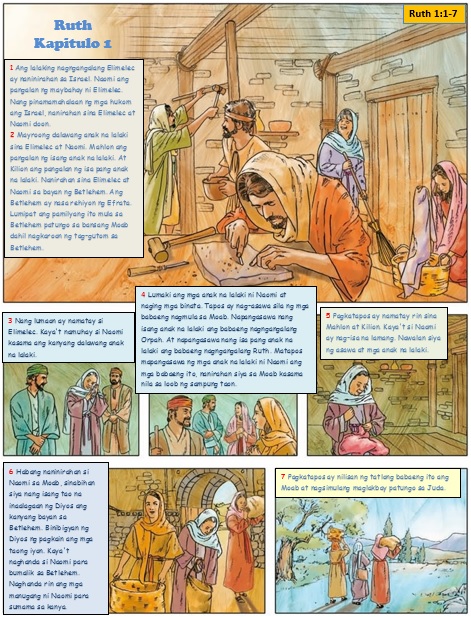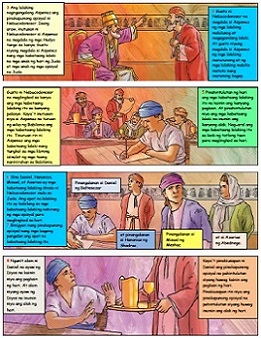
A Strategic Shift: Our ultimate goal here at The Bible Translator’s Assistant is to help translate the entire Bible and other Christian literature into as many languages as possible using the software we’ve developed. However, for the near future, we’ve decided to focus on the Old Testament for two reasons: 1) While a number of other Christian organizations are working on New Testament translations, no other organization is making a large-scale effort to translate the Old Testament into minority languages. 2) Many of the missionary translators we’re in contact with don’t need or want computational help with their New Testaments, but they welcome it for their Old Testaments. Therefore Richard Denton has shifted his work from the Pauline Epistles to Psalms, and Stephen Beale is developing semantic representations for the Old Testament historical narratives. We’ve also invited an Old Testament specialist named David Stringham to join this ministry. Please pray that we’ll be able to develop accurate semantic representations for the entire Old Testament, and that we’ll be able to help translate the Old Testament into many languages.
A New Consultant: We at TBTA are very pleased to introduce David Stringham as a new consultant who will be helping with the development of our Old Testament semantic representations. David has Masters degrees in both Hebrew and Linguistics, and has taught Hebrew courses at the University of Texas at Austin. He worked for 31 years at the World Bible Translation Center where he was their Director of Old Testament Translations, and he managed the translation of the Old Testament for 18 of their Bible projects. David will be joining us part-time to provide his Hebrew and Aramaic expertise as we focus on building semantic representations for the Old Testament. You can read more about him on the ‘About Us’ page of our website (http://www.thebibletranslatorsassistant.org/AboutUs.aspx). We are very thankful to God that David is joining this ministry.
The Tagalog and Ayta Mag-Indi projects in the Philippines: The Tagalog project in the Philippines continues to progress well. After Tod Allman and Ephraim Rey entered the required vocabulary for the book of Esther, our software produced an initial translation, and Ephraim spent just 5 hours editing that text to make it a presentable first draft. The Tagalog lexicon and grammar are now well developed, so only minor modifications are being made. The Tagalog grammar will soon be modified to accommodate another language called Ayta Mag-Indi. A preliminary experiment indicated that what took Tod and Ephraim months to do in Tagalog is taking just hours in Ayta Mag-Indi because the two languages are structurally very similar. Please pray that both of these projects will proceed unhindered.
Another Partnership: TBTA is in the process of partnering with the Free Illustrated Bible organization (www.FreeIllustratedBible.com). They provide free illustrations for the entire Bible, and have given TBTA permission to use those illustrations in our translations in the Philippines. So Ephraim Rey is putting our computer generated Tagalog translations into their picture Bible format which is very appealing to the young people in Manila. Two sample pages of this project are shown below. The Tagalog translation of Ruth in the picture Bible format is available on our website: http://www.thebibletranslatorsassistant.org/pdf/Ruth%20-%20Edited%20and%20Illustrated%20-%20Tagalog.pdf. The books of Esther and Daniel will be available soon, and then we’ll work through Genesis.
Richard Denton’s “In Plain English”: Recently we’ve started working in the Psalms. In our last newsletter we mentioned that we’ve been avoiding metaphor in the New Testament letters. However, in order to convey the poetry of the Psalms, we’ve decided to judiciously allow some metaphor. We’ll consider how obvious the intended meaning is, and keep only those metaphors for which the meaning can reasonably be determined from the context. Our semantic representations don’t include any semantically complex concepts such as “shepherd,” but linguists using our software are able to indicate whether their target languages have lexical equivalents for certain complex concepts that are useful in the Bible. When a language has a lexical equivalent for a semantically complex concept such as “shepherd,” our software will automatically adjust the semantic representations accordingly. For example, if a language has a word for “shepherd,” our software will automatically adjust the semantic representations for Psalm 23:1-3, and the resulting translation will be:
Title: The Lord is like a shepherd. David wrote this song.
1. The Lord is my shepherd. I have all the things that I need.
2. The Lord causes me to lie down in fields that have green grass. He leads me to streams that have good water.
3. The Lord causes me to be strong. He leads me on the good paths that He chooses.
If a target language doesn’t have a lexical equivalent for “shepherd,” the title and first verse will be translated differently as:
Title: The Lord is like a person who takes care of sheep. David wrote this song.
1. The Lord is like a person who takes care of sheep. He takes care of me. I have all the things that I need.
So our software automatically adjusts the semantic representations to accommodate languages that have lexical equivalents for semantically complex concepts that are useful throughout the Bible.
Many people who have virtually no access to God’s Truth fall victim to Satan’s lies
because they don’t understand the Bible.
Through partnering in Bible translation, you can put Swords at their fingertips.”
Wycliffe Bible Translators




